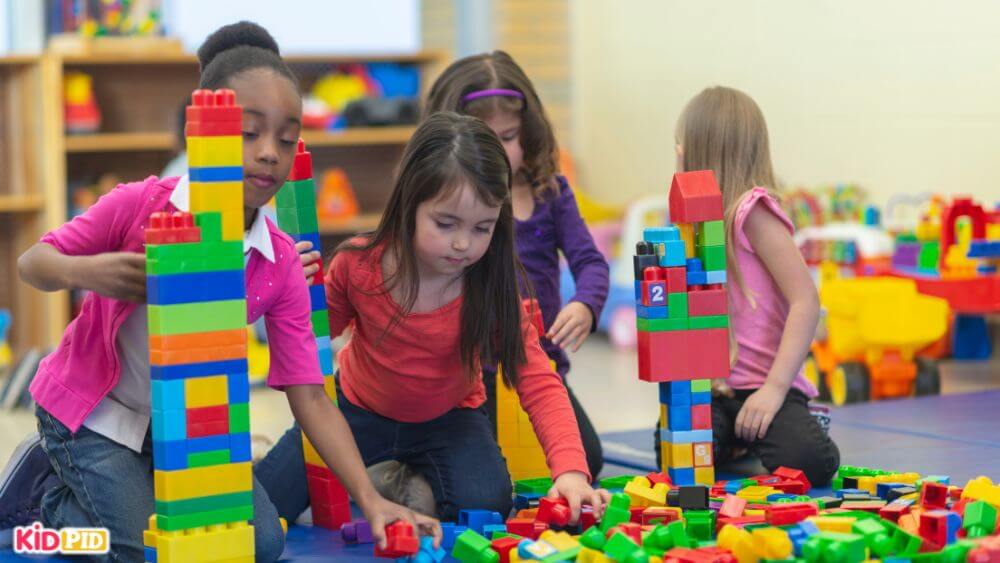You are your child’s first and most crucial teacher as a parent. Children perform better and feel better about attending school when parents and families are active in their education, and this involvement can start early, even at a daycare in Ashland, MA. In reality, several studies indicate that a child’s academic achievement is more influenced by what the family does than by how much money the family earns or how educated the parents are. Parents may assist their kids’ learning at home and during the school year. Here are some suggestions to get you going!
Contents
Goals Should Precede Grades
Setting objectives for yourself and your family is a simple approach to engaging in the process. Try to do this at the start of a new season, a new school year, or the first of the month. Keep the conversation informal and relaxed. The goal of this method is to assist family learning, not to improve grades. Everyone establishes three short-term, attainable objectives focused on the chores and advancements under their power. One of those three objectives needs to be difficult. Set some goals that push you beyond your comfort zone because unless we model emotional and intellectual bravery for our children, we have little chance of inspiring them to do the same.
Take guitar, dancing, or Spanish lessons, engage in a new activity or choose a new hobby. After all, this is how we increase our cognitive capacity and create new neural connections in our brains that can make us more powerful, intelligent, and effective learners. Consider taking the time to evaluate how everyone performed on prior goals before setting new ones. Then, each month or once per semester, go through these objectives. If you don’t meet your objectives, explain why and what you’ll do differently next time. If you are successful, be happy about it!
Attend the Back-to-School and the Parent-Teacher Conferences
When parents are actively interested in their children’s education, kids perform better in school. This an excellent method to familiarize yourself with your child’s instructors, and they expect to attend a back-to-school night at the beginning of the school year. Also up for discussion are the programs and rules that apply to the entire institution.
Another approach to keeping informed is to go to parent-teacher conferences. These are often held once or twice a year during reporting periods on progress. The conferences allow you to start or continue a dialogue with your kid’s teacher and go over methods for assisting your child in performing well in class. Your child can learn that what happens at school will be discussed at home by meeting with the teacher. Additional meetings with teachers and other school personnel might be organized if your child has specific learning needs to discuss creating or amending individualized education plans (IEPs), education plans, or gifted education plans. Remember that meetings with teachers, administrators, school counselors, or other school staff members can be requested by parents or guardians at any time during the academic year.
Make sure your youngster completes their homework. Let your youngster know that you value education, and that daily homework completion is required. Establishing a dedicated study space, a regular homework period, and blocking out distractions like the television and phone calls from friends are all ways to assist your child with their schoolwork. Helping Your Child With Homework provides some excellent suggestions for making sure your child completes their homework. Suppose you are hesitant to assist your child with their homework because you believe you don’t understand the subject matter well enough or you are unable to speak or read English. In that case, you can still be of assistance by demonstrating your interest, assisting your child with organization, providing the necessary materials, asking your child about daily assignments, checking to see that the work is finished, and praising all of your child’s efforts. Always remember that doing your child’s schoolwork won’t benefit him long-term.
Helping children establish productive, good habits
Children are more inclined to follow a strategy they came up with themselves. When children are involved in developing plans, buy-in occurs most frequently, and sometimes being practical and effective is more essential than being accurate. Aid children in putting their systems into practice. If it’s a planbook, discuss the need to establish interim deadlines. Experiment with alternative alert sequences before a deadline if it’s an alarm on a virtual calendar. Consider how your participation in this process resembles the training wheels on a child’s bike. We can remove the training wheels as our kids become more confident in their tactics and frameworks.
Assist your youngster with exam preparation
Test results are crucial in establishing a student’s grade. Additionally, your kid could take one or more standardized exams throughout the academic year, and their instructor might allot class time to test preparation. There are many ways you, as a parent, may aid your kid before and after she takes a standardized exam. You can also use many methods to help her develop daily learning habits that will make her better prepared for the test.
Your Child Should Attend School able to learn
Kids who eat a healthy breakfast are better able to face the day. Kids who eat breakfast every day have more energy and do better in school. Additionally, breakfast eaters are less likely to miss school and are less likely to visit the school nurse with stomach issues connected to hunger.
You can aid your child’s attention span, focus, and memory by serving breakfast items high in whole grains, fiber, and protein and low in added sugar. Send along fresh fruit, almonds, yogurt, or half a peanut butter and banana sandwich if your youngster runs behind some mornings. Before the first bell, many schools serve a variety of wholesome breakfast foods. Children also require the recommended amount of sleep to stay attentive and prepared to study all day. Most children of school age require 10 to 12 hours of sleep every night. Having trouble falling asleep can happen for several reasons at this age. Kids who don’t get complete sleep may be affected by homework, sports, extracurricular activities, TV, computers, and video games, as well as busy family schedules. Lack of sleep can make children agitated or hyperactive and make it difficult for them to concentrate in class. Therefore, it’s crucial to have a regular sleep routine, especially in the evenings when classes are in session. Make careful to restrict stimulating distractions like TV, video games, and internet access, and give your child adequate time before bed to unwind before lights out.
Make a Technology Use Plan
Make a strategy for how your family will use technology. This may involve minutes, information, or context. Agree in advance that family dinners and schoolwork will be tech-free zones. Then a tech agreement, Some children respond well to the clarity of a written agreement that you may refer to as needed.
Instill Study Skills
Young children may find it frightening to study for a test, and many instructors believe that parents would assist their children during elementary school. Giving your child study techniques now will result in lifelong learning habits. In primary school, children often take end-of-unit assessments in arithmetic, spelling, science, and social studies. Make sure you are aware of when tests are due so you can assist your child with preparation beforehand rather than the night before. You might also need to remind your kid to bring home the proper study aids, including books, study aids, or notes. Teach your youngster how to divide larger chores into more manageable portions so that studying for a test won’t feel overwhelming.
There are many compelling reasons for parents to volunteer at school, regardless of whether their children are just starting kindergarten or are in their last year of elementary school. It’s a fantastic method for parents to demonstrate their involvement in their children’s education. Parents can participate by:
- arranging and participating in events and other special occasions like bake sales, car washes, and book fairs as a classroom assistant or homeroom parent
- escorting school excursions
- preparing for class parties
- attending meetings of the school board
- join the parent-teacher organization at the school
- working as an assistant at a library
- reading a tale to the class, delivering a discussion at a career day event, or going to a school play or concert




